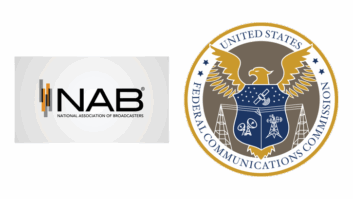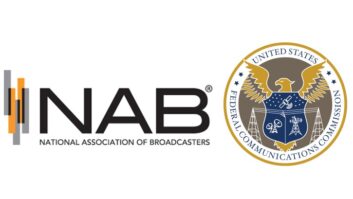The National Association of Broadcasters believes the creation of a new class of FM stations in this country will bring interference challenges, so perhaps the FCC would be better off addressing more pressing issues first, like finding better ways to expedite the settlement of interference complaints against FM translators.
The C4 FM notice of proposed rulemaking, which would allow some Class A stations to double their power level from 6,000 to 12,000 watts, is being circulated by the FCC’s Media Bureau for public input.
The NAB’s hesitation on the proposed new class of FM stations is tied to its own Petition for Rulemaking filed in April 2017 that proposes policy and procedural changes meant to increase the certainty of translators and facilitate the handling of interference complaints between translators and FM stations, according to an ex parte submission by NAB detailing a recent meeting between its representatives and Evan Swarztrauber, policy advisor to FCC Commissioner Brendan Carr.
Larry Walke, associate general counsel for NAB, says the group is encouraging the FCC to advance NAB’s petition to a Notice of Proposed Rulemaking “to help ensure the certainty of translators” to benefit millions of listeners who rely the content provided by translators, “and should certainly take priority over consideration of the Class C4 proposal, which likely will only add to the interference challenges in the marketplace.”
Walke continues, “Translators are an increasingly important tool for broadcasters. FM stations use translators to provide critical fill-in service, and to carry HD Radio multicast channels, many of which provide highly-valued niche programming. In addition, pursuant to the Commission’s AM Radio Revitalization proceeding, thousands of AM broadcasters are now able to use translators to provide enhanced, expanded service, including new local programming.”
The NAB projects that approximately half of all AM radio stations in this country will utilize FM translators once all the currently pending applications for cross-service translators are processed by the FCC.
FCC Chairman Ajit Pai said earlier this month the C4 reforms would allow “hundreds of Class A FM stations to broadcast at increased power.” Pai has been supportive of at least further exploration of the power increase for Class A stations. At the NAB Radio Show in 2016 in Nashville, then Commissioner Pai said, “An NPRM would allow us to ask the right questions, explore the advantages and disadvantages of the proposal and receive the review of all stakeholders. Then we would be in a better position to determine whether to implement this idea.”
Matthew Wesolowski, CEO of SSR Communications Inc., licensee of WYAB(FM) in Flora, Miss., and David Honig, president emeritus and senior advisor of the Multicultural Media, Telecom and Internet Council were co-petitioners of the FM Class C4 proposal. The FCC took preliminary comments on their rulemaking request and assigned it a rule making number (RM-11727) in 2014. Wesolowski and Honig told Radio World previously there are many owners of small Class A FMs, “mom and pop” operations that are sometimes “just barely paying the bills.”
Wesolowski recalls that respondents to the FCC’s preliminary request for comments in 2014 “were almost universally positive.”







